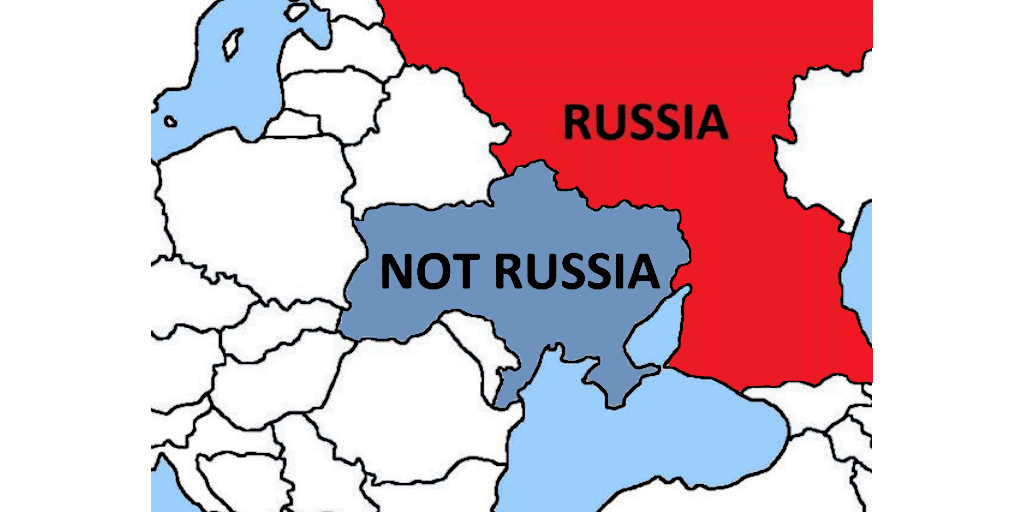In a speech held in Strasbourg on 23 October, EU’s foreign policy chief, Federica Mogherini, referred to the Black Sea as "a European sea." Russia’s state-controlled RIA Novosti found her statement so controversial that it became the focus of a separate report, titled "Mogherini called the Black Sea ‘European."
As the independent Russian outlet The Insider pointed out in a critical article, all states which border with the Black Sea are members of the Council of Europe; so it is hard to see what should be extraordinary in Ms. Mogherini's statement.
Along the same line, Russian state TV Pervy Kanal referred to the Sea of Azov as "our inland sea," even if it, besides Russia, also has a coastline in Ukraine. This incident became the topic of another critical article by The Insider.
We recently described how Pyotr Tolstoy, the host of the Pervy Kanal Sunday night talk show in which the "our" reference was used, is also the deputy speaker of Russia’s parliament, the State Duma. This conflict of interest might explain why nobody around Mr. Tolstoy dared to fact-check and challenge the misleading reference to the Sea of Azov’s geography.
As key moments in recent history have shown, the fundamentals of what is "ours" and what isn’t, are willingly ignored by Russian state propagandists and decision makers.
Read also: None of 8 myths in Putin’s ‘Crimea is Ours’ ideology stands up to close examination, Popov says
Kremlin propagandists can refresh their knowledge about political geography by looking at the above infographic – a modern strategic-communications classic from Canada’s Ministry of Foreign Affairs. The Sea of Azov is in the south-east of Ukraine and the south-west of Russia – and north of the European Black Sea.
Russian propaganda often labels many things as "ours" (i.e. belonging to Russia) or "Russian" to justify any hostile actions committed or planned by Russia.
- "Crimea is ours" meme was used postfactum to justifying its military invasion in Crimea, a region of a neighboring country and the further annexation of the peninsula. The reason for the invasion was a protection of the Russians in Crimea from "Ukrainian Nazis."
- Russian officials mentioned "protection of Russian-speakers" to justify Russian hostility against Ukraine.
- The Russian 2008 invasion in sovereign Georgia was justified as "defending Russian citizens in South Ossetia" - Russia went as far as accusing Georgia of committing genocide against Ossetians, this propaganda formula was adopted by Russia in 2014 as a Ukrainian genocide against its Russian-speaking citizens.
- Russia often accuses the Baltic States of oppressing the Russian-speakers, the same narrative is, of course, the propagandists impute the same to Ukraine.
- The Russian Foreign Ministry and other officials often blame a number of Western states for Russophobia.
The latest examples of these rhetorics are referring to the Sea of Azov as "our inland sea" and the Russian intentions to defend Russian church believers in Ukraine.
Read also:
- Moscow's blockade of Sea of Azov intended to force Kyiv to lift its own on Crimea
- None of 8 myths in Putin’s ‘Crimea is Ours’ ideology stands up to close examination, Popov says
- How the word “genocide” is abused in pro-Kremlin language
- How Russia uses dehumanizing disinformation as a weapon of the information war against Ukraine
- Seven things you should know about pro-Kremlin disinformation
- Like Crimea, ‘Trump is Ours,’ Russian products proclaim and other neglected Russian stories
- The Crimean Anschluss at three: ‘A jubilee of stupidity and criminality’
- ‘Krymnash’ Meme Part of Russian Society’s Return to Late Soviet Times
- “Russophobia” as a Russian propaganda tool

